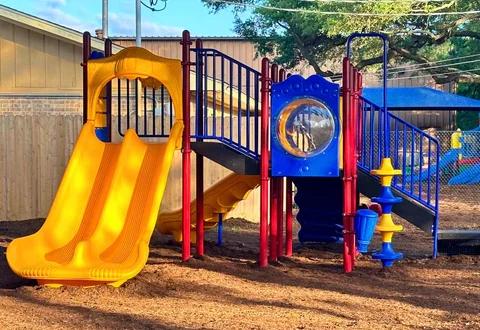Introduction
Early childhood nutrition is crucial to the development of a strong body and sharp mind. Children grow rapidly in the first few months. The food they eat and the way they are cared for directly impact their mental, emotional, and physical development. We must make sure that children eat a healthy diet and develop good habits when it comes to child care.
Why Early Childhood Nutrition Is Important
Children must get the right nutrition.
- Support brain development
- Strengthen your bones & muscles
- Immune system strengthening
- Maintain your energy for learning and playing
A poor diet in early childhood can lead to fatigue, learning difficulties, delayed growth, and long-term health issues such as diabetes and obesity.
Nutrients for Growing Kids
To meet the daily nutritional needs of each child, a variety of foods is required. The list includes:
- For growth and muscle repair. Found in meat, lentils and milk.
- Calcium: For strong teeth and bones. Calcium is found in milk, dairy products, leafy green vegetables, yoghurt and other foods. )
- Iron: brain development and energy. Iron: found in beans, spinach and lean meats.
- Vitamins A, C, and D For skin, immunity and vision
- Fibre: Aids digestion (found in whole grains, fruits and vegetables).
Healthy Eating in Child Care Settings
Preschools and childcare centres should:
- Snacks, balanced meals and healthy snacks
- Eat fruits, vegetables, and whole grains.
- Limit salt, sugar and processed foods.
- Offer clean drinking water all day.
- Create an environment that is relaxed and enjoyable for eating.
Children need to be taught how to behave, to try new food, and to understand their hunger signals.
Parents’ nutrition
Parents and caregivers should work together to ensure children develop healthy eating habits. This includes:
- Information on food allergies and preferences of a child
- If required, we can provide healthy packed lunches
- Avoid sugary drinks and snacks
- Good eating habits are easy to model at home
Communicating with the childcare staff and at home is important for children to develop healthy eating habits.
Teaching Healthy Habits
It is important to teach children how to take care of their health in addition to eating. You can do this by:
- Wash your hands before eating or after using the toilet
- Brushing teeth after eating is a good idea (if you can).
- Covering your mouth when you cough or sneeze
- Fun songs and routines for teaching personal hygiene
These small habits can prevent illness and teach responsibility to children at an early age.
The Role of Physical Activity
Exercise and nutrition are closely linked. Active play:
- Enhances coordination and strengthens
- Reduce stress and anxiety
- Teamwork builds social skills
- Preventing childhood obesity
Every day, childcare programs should provide between one and two hours of physical exercise. This includes outdoor activities, games, dance, and structured movements.
Clean and Safe Environment
To maintain a safe and healthy environment for your children, you must keep the area clean. It includes:
- Clean toys and surfaces every day
- Make sure that the bathroom and dining area are clean
- Keep first aid kits on hand
- It is important to monitor the health of children and detect illnesses early.
Healthy environments make children feel secure and ready to learn.
Food Allergies and Special Diets
Many children have food allergies or dietary restrictions. Childcare providers must:
- Each child has unique needs
- Read all food labels carefully
- No cross-contamination in the kitchen
- Prepare a plan for emergencies and medication (such as EpiPen).
Every child can feel safe and cared for when they are included and aware.
Conclusion
Health and nutrition are the cornerstones of successful child care. Healthy children who are physically active and encouraged to adopt good habits will be better prepared to grow and learn. By working together—caregivers, parents, and educators—we can ensure every child gets the healthy start they deserve.





